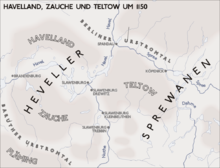The Slavs or Slavic people are groups of people who speak Slavic languages. Slavs are geographically distributed throughout the northern parts of Eurasia; they predominantly inhabit Central Europe, Eastern Europe, and Southeastern Europe and Northern Asia, though there is a large Slavic minority scattered across the Baltic states and Central Asia, and a substantial Slavic diaspora in the Americas, Western Europe, and Northern Europe.

Wends is a historical name for Slavs who inhabited present-day northeast Germany. It refers not to a homogeneous people, but to various people, tribes or groups depending on where and when it was used. In the modern day, communities identifying as Wendish exist in Slovenia, Austria, Lusatia, the United States, and Australia.
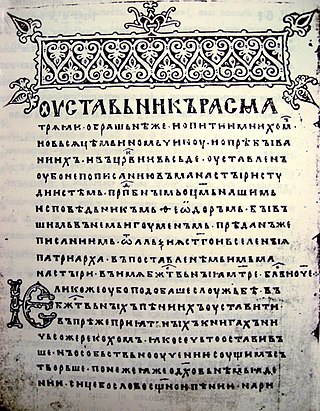
Old Church Slavonic or Old Slavonic is the first Slavic literary language and the oldest extant written Slavonic language attested in literary sources. It belongs to the South Slavic subgroup of the Balto-Slavic branch of the Indo-European language family and remains the liturgical language of many Christian Orthodox churches. Until the reforms of Patriarch Nikon of Moscow between 1652 and 1666, Church Slavonic was the mandatory language of the Russian Orthodox Church.
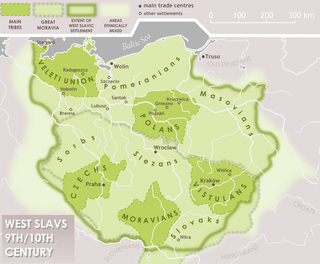
The Pomeranians, first mentioned as such in the 10th century, were a West Slavic tribe, which from the 5th to the 6th centuries had settled at the shore of the Baltic Sea between the mouths of the Oder and Vistula Rivers. They spoke the Pomeranian language that belonged to the Lechitic languages, a branch of the West Slavic language family.

The Northern March or North March was created out of the division of the vast Marca Geronis in 965. It initially comprised the northern third of the Marca and was part of the territorial organisation of areas conquered from the Wends. A Lutician rebellion in 983 reversed German control over the region until the establishment of the March of Brandenburg by Albert the Bear in the 12th century.

The West Slavic languages are a subdivision of the Slavic language group. They include Polish, Czech, Slovak, Kashubian, Silesian, Upper Sorbian and Lower Sorbian. The languages have traditionally been spoken across a mostly continuous region encompassing the Czech Republic, Slovakia, Poland, the westernmost regions of Ukraine and Belarus, and a bit of eastern Lithuania. In addition, there are several language islands such as the Sorbian areas in Lusatia in Germany, and Slovak areas in Hungary and elsewhere.

Eastern Slavic naming customs are the traditional way of identifying a person's family name, given name, and patronymic name in East Slavic cultures in Russia and some countries formerly part of the Russian Empire and the Soviet Union.

Polabian Slavs, also known as Elbe Slavs and more broadly as Wends, is a collective term applied to a number of Lechitic tribes who lived scattered along the Elbe river in what is today eastern Germany. The approximate territory stretched from the Baltic Sea in the north, the Saale and the Limes Saxoniae in the west, the Ore Mountains and the Western Sudetes in the south, and Poland in the east.
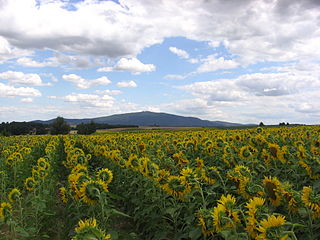
The Ślęża is a 718 m (2,356 ft) high mountain in the Sudeten Foreland in Poland. The mountain is built mostly of granite and is covered with forests.

There are many widely varying names of Germany in different languages, more so than for any other European nation. For example:
Wolkwitz is a family name, or surname, of German/Yiddish/Western-Slavic origins.

The Milceni or Milzeni were a West Slavic tribe, who settled in the present-day Upper Lusatia region. They were gradually conquered by Germans during the 10th century. They were part of Sorbian tribes. Modern descendants of the Milceni are the Upper Sorbian-speaking Sorbs of the Free State of Saxony, Germany.
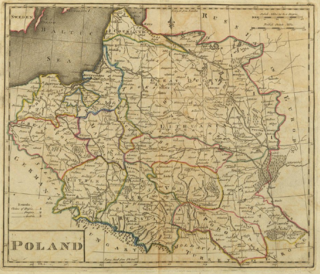
The ethnonyms for the Poles (people) and Poland include endonyms and exonyms. Endonyms and most exonyms for Poles and Poland derive from the name of the West Slavic tribe of Polans (Polanie), while in some languages the exonyms for Poland to derive from the name of another tribe – the Lendians (Lędzianie).

The Warnabi, Warnavi, Warnahi, Wranovi, Wranefzi, Wrani, Varnes, or Warnower were a West Slavic tribe of the Obotrite confederation in the ninth through eleventh centuries. They were one of the minor tribes of the confederation living in the Billung Mark on the eastern frontier of the Holy Roman Empire. They were first mentioned by Adam of Bremen.
Herzog is a German hereditary title held by one who rules a territorial duchy, exercises feudal authority over an estate called a duchy, or possesses a right by law or tradition to be referred to by the ducal title. The word is usually translated by the English duke and the Latin dux. Generally, a Herzog ranks below a king and above a Graf ('count'). Whether the title is deemed higher or lower than titles translated into English as prince is dependent upon the language, country, and era in which the titles coexisted.

The Ukrani or Ukrians were a West Slavic Polabian tribe in the Uckermark from the 6th–12th centuries. Their settlement area was centered on the lakes Oberuckersee and Unteruckersee at the spring of the Uecker River. In this region, burghs with a proto-town suburbium were set up at Drense and on an isle in Lake Oberuckersee.

Pomerania during the Early Middle Ages covers the History of Pomerania from the 7th to the 11th centuries.
The Kessinians, also known as Kessini, Chizzini, Kcynianie and Chyżanie, were a medieval West Slavic tribe in what is now northeastern Germany. They inhabited the territory between the Warnow and Recknitz rivers, today split between the districts of Rostock and Vorpommern-Rügen in Mecklenburg-Vorpommern. Their capital and name-giving stronghold was a gard near modern Kessin east of Rostock. Linguistically, they belonged to the Polabian Slavs.

Historical Western Pomerania, also called Cispomerania,Fore Pomerania, Front Pomerania or Hither Pomerania, is the western extremity of the historic region of Pomerania forming the southern coast of the Baltic Sea, located mostly in north-eastern Germany, with a small portion in north-western Poland.

The Principality of Copnic was a Slavonic principality in Central Europe in present-day central and eastern Brandenburg. Its seat of power was the castle and trade hub Copnic.
